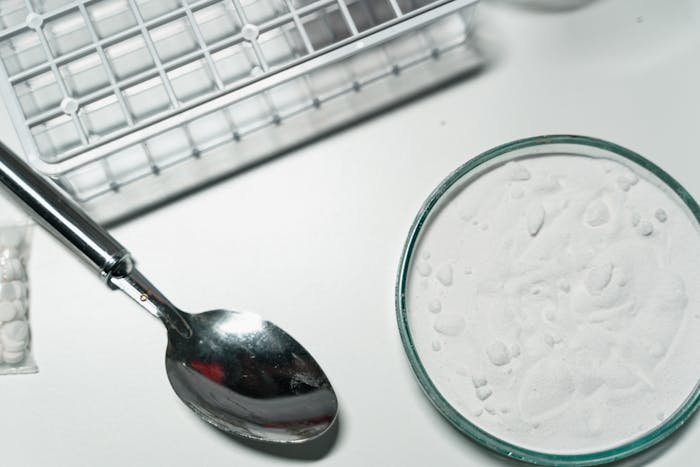Ketamine has increasingly become one of the most discussed substances in modern medicine and recreational settings.
Once confined to operating theatres and veterinary clinics, in recent years it has come under the spotlight for distressing circumstances, while simultaneously being hailed by some as a breakthrough in treating severe mental health issues. [1]
Ketamine’s use from anaesthetic to antidepressant is far from straightforward, and its effects on mental health in the short and long-term are complex, controversial, and still widely unknown.
This blog explores what current research tells us about the clinical promise, risks associated with misuse, and the long-term impacts of ketamine on mental health.

Ketamine is an anaesthetic that causes dissociation, altering your perception, consciousness, and overall sensory experience.
In medical clinics, it’s mainly used for pain relief and sedation, particularly in emergency and paediatric care. However, over the last few years, low-dose ketamine has been trialled for use more widely as a treatment for severe depression, PTSD, and suicidal ideation, with findings generally highlighting fast results. [2]
Despite its helpful uses in medicine, ketamine is more commonly associated with misuse recreationally. Known by street names such as “Ket” or “Special K”, the drug is popular in clubs and misused by young people for its euphoric and hallucinogenic effects on the mind.
Recreational use is particularly dangerous since it is often used in higher doses and taken alongside other substances (polysubstance use) such as alcohol, which can lead to serious consequences.

In controlled environments, low doses of ketamine have shown rapid antidepressant effects. Unlike traditional antidepressants, ketamine can take as little as a few hours or days to work and lift your mood, as opposed to weeks. [3]
Studies suggest that ketamine may help:
According to the current research findings on ketamine, the positive effects are attributed to ketamine’s impact on the glutamate system, which plays a crucial role in regulating mood and cognition. The drug modulates NMDA receptors, prompting the brain’s ability to form new connections or also known as neuroplasticity. [4]
However, the benefits of ketamine as an antidepressant are thought to be short-lived, with patients needing multiple infusions to get the desired effects, and research on long-term safety is also still limited.
Due to the side effects of the drug and the widely unknown impacts that may come with long-term use, it’s currently only being used as a treatment for depression which has not responded to other treatments, such as at least 2 or 3 antidepressants.
The effects of ketamine can be unpredictable and dangerous when used outside of a controlled, clinical environment.
Recreational use often involves high doses of ketamine and is often used in combination with other substances like alcohol or MDMA. This can be risky and even fatal. [5]
Common mental health effects of ketamine include:
In severe cases, chronic ketamine use has been linked to psychotic symptoms, including hallucinations and delusions.
One of the most serious psychological side effects of ketamine misuse is known as a “K-hole”. This is a dissociative experience in which you feel like you are completely detached from reality and are unable to move or communicate with anyone in your surroundings.
A K-hole can trigger extreme feelings and induce panic, confusion and trauma, and exacerbate your symptoms if you already have underlying mental health conditions.

Taking ketamine with other substances (polysubstance use) is common and significantly increases your risk of mental health side effects.
The most frequent substance combinations taken recreationally include alcohol, MDMA and cocaine, which all have different side effects and impacts on your physical and mental health. [6]
The combination of ketamine and alcohol can result in:
Taking ketamine at the same time as alcohol is particularly dangerous due to the nature of both substances and their depressant effect on the central nervous system, which makes overdose and accidents more likely.
Taking ketamine with stimulants can:
When it comes to the long-term mental health effects of ketamine, research is still evolving, making it difficult to fully understand the impacts the drug can have.
However, evidence suggests that frequent use of ketamine in high doses can lead to persistent anxiety and depression, emotional detachment, and an increased risk of suicidal ideations.
These risks are increased with a lack of access to appropriate mental health support, especially among young people who are more likely to use ketamine recreationally.
The effects of ketamine on mental health are complex and not fully understood. In medical environments, the drug can offer safe anaesthesia, pain relief, and short-term treatment for severe mental health issues such as treatment-resistant depression or suicidal ideation.
However, recreational ketamine use can be dangerous and lead to serious psychological impacts. This is particularly serious when used by young people and in combination with other substances such as alcohol and cocaine.
The harm to young people, whose brains are still developing, is also significant. Frequent misuse of ketamine can cause long-term psychological effects, including possible impaired learning at school and a lack of impulse control.
As research continues to develop, one thing remains clear: ketamine is not a harmless party drug. Whether used medicinally or recreationally, it requires careful consideration, informed decision-making, and professional oversight.
Awareness, early intervention, and access to support services remain the best tools for protecting mental health in the face of rising ketamine use.
[1] Duman, R.S. (2018). Ketamine and rapid-acting antidepressants: a new era in the battle against depression and suicide. F1000Research.
[2] Brown, K., & Tucker, C. (2020). Ketamine for acute pain management and sedation. Critical Care Nurse.
[3] Sepulveda Ramos, C., et al. (2022). The therapeutic effects of ketamine in mental health disorders: a narrative review. Cureus.
[4] Wu, H., et al. (2021). Ketamine for a boost of neural plasticity: how, but also when?. Biological Psychiatry.
[5] Orhurhu, V.J., Vashisht, R., Claus, L.E., et al. (Updated 2023). Ketamine toxicity. StatPearls.
[6] Lankenau, S.E., & Clatts, M.C. (2005). Patterns of polydrug use among ketamine injectors in New York City. Substance Use & Misuse.